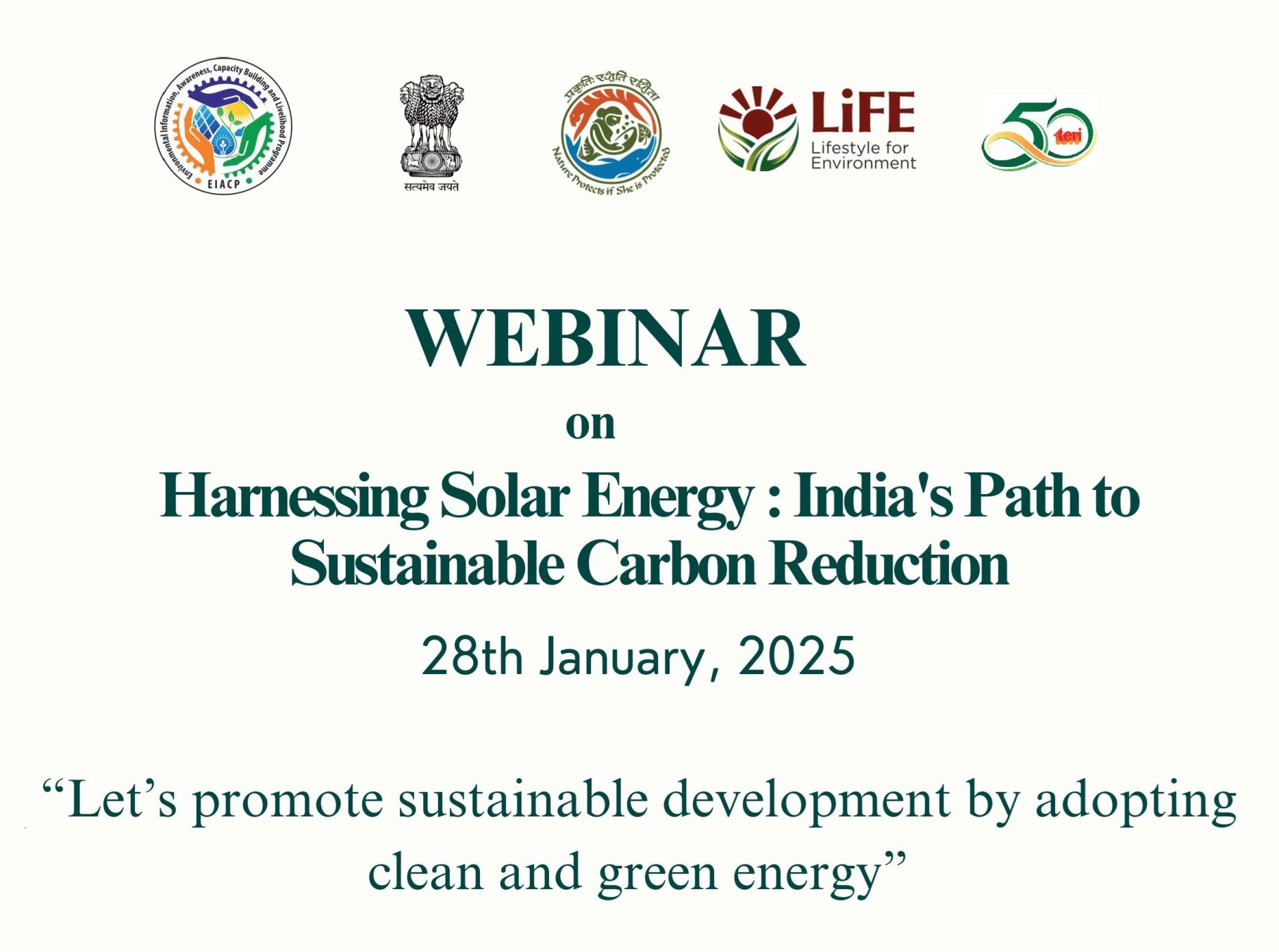Webinar on “Harnessing Solar Energy: India's Path to Sustainable Carbon Reduction”

International CO2 Emissions Reduction Day is observed on January 28th every year. The day's purpose is to raise awareness about the harmful effects of carbon dioxide, i.e. the most abundant GHG on earth and to encourage people to find better alternatives in order to turn carbon neutral.
India’s geographical advantage is undeniable. India, a country blessed with abundant sunlight, is making significant strides in harnessing solar energy. India has set its sights on becoming a worldwide solar powerhouse with its dedication to climate change mitigation and sustainable development. But the road to an environmental friendly future is lined with favorable prospects and difficult obstacles. In recent years, solar energy has had a noticeable impact on India's energy situation. Millions of people in Indian communities have profited from solar energy-based decentralized and distributed applications that provide environmentally friendly lighting, cooking, and other energy needs. Furthermore, over time, India's solar energy industry has grown to become a major contributor to the country's grid-connected power generation capacity. As it emerges as a key component of the solution to satisfy the country's energy needs and a crucial actor for energy security, it supports the government's objective for sustainable growth.
With one of the fastest-growing economies, India has set high goals to satisfy its Paris Agreement climate pledges, guarantee energy security, and advance environmental health. This includes a commitment to achieving net-zero carbon emissions by 2070 and 500 gigawatts (GW) of renewable capacity by 2030.
The Energy and Resources Institute (TERI) meticulously conducts research on renewable energy including solar energy and other subject areas to discover innovative solutions that align with India's path to sustainable carbon reduction practices in order to achieve “India's 2030 Decarbonization Target”. TERI's primary goals are to promote and facilitate clean energy technology adoption, integrate renewable energy sources into the grid, and encourage energy efficiency in public utilities and industry. As part of its ongoing efforts to develop strong skills in the electricity and renewables sectors, TERI offers advice services on technical and policy matters pertaining to both conventional and renewable energy sources, including wind, hydro, solar PV, floating solar, solar thermal, and green hydrogen. TERI is also closely associated with ISA (International Solar Alliance). On the occasion of International CO2 Emissions Reduction Day TERI EIACP intends to organize webinar on 'Harnessing Solar Energy: India's Path to Sustainable Carbon Reduction'. This webinar explores the pressing issue of carbon emissions and their detrimental impact on the environment. It highlights how solar energy serves as a transformative solution in reducing greenhouse gases, fostering sustainability, and aligning with the principles of Mission LiFE (Lifestyle for Environment).
Discussion Topics:
- How solar energy can contribute to sustainable lifestyles and environmental goals of Mission Life.
- Policies and Incentives for Solar Adoption in India (PM-KUSUM scheme, rooftop solar subsidies, and net metering policies)
- Innovations in Solar Technology, its adoption and Opportunities in the Renewable Energy Sector
- Case studies of successful solar projects in India.

